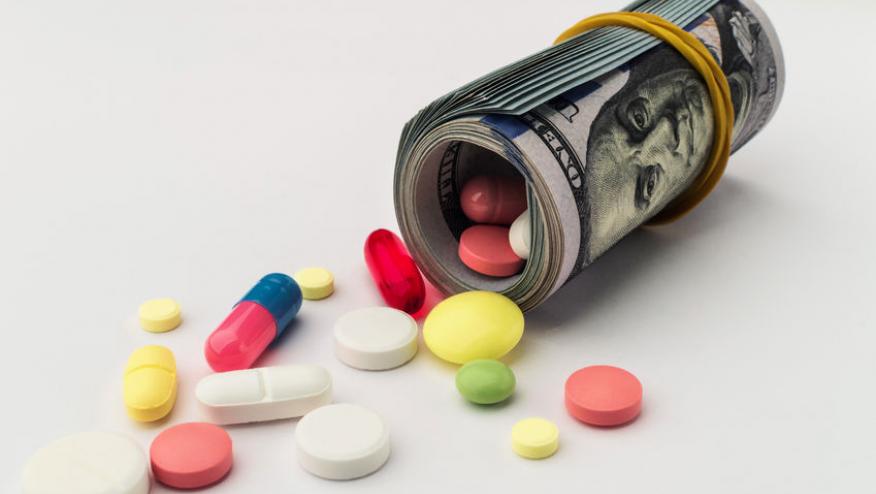Senate Drills Drug Makers Over Price Save

Reuters reported that today, the US Senate Finance Committee met to question the executives from seven US pharmaceutical companies on the rising price drugs in America.
The seven drug companies include Abbvie Inc, AstraZeneca PLC, Sanofi SA, Pfizer Inc, Merck & Co, Johnson & Johnson and Bristol-Myers Squibb Co. This hearing is the first time drug company executives will face lawmakers in more than two years.
The current administration has targeted the high price of drugs as a priority and President Donald Trump has openly declared that drugmakers are “getting away with murder”.
Several administraion measures are aimed at better control including the U.S. Department of Health and Human Services (HHS) plan to lower drug prices by curbing medicine costs. Moreover, today the House introduce a new bill proposing Medicare health coverage for all Americans.
Since the start of the year thes companies have raised the price of more than 250 prescription drugs.
Pharmaceutical representatives were given the opportunity to make prepared remarks, many noting the cost of innovation, research and drug development as a driving force behing rising costs.
Senate Finance Committee Chairman Chuck Grassley has challenged pharma executives to not blame everyone but themselves for their role in "fixing the problem.”
U.S. Senators called drug pricing practices “morally repugnant” and told drug company executives they do not want to hear them blame others for the high prices, taking an aggressive stance at the start of a Senate hearing on the rising costs of prescription medicines.
In the opening statement, Sen. Ron Wyden, the Senate Finance Committee’s top Democrat tore into each company one-by-one for “profiteering and two-faced scheming.” He blasted Big Pharma as "morally repugnant" and accused the companies of operating in an "unacceptable" way. He grew testy when he believed the executives weren't being forthcoming about reducing list prices.
“Drug makers behave as if patients and taxpayers are unlocked ATMs full of cash to be extracted, and their shareholders are the customers they value above all else,” Wyden said.
"All of this other stuff is window dressing," Wyden snapped. "You are stonewalling on the key issue."
At one point, he pressed the chairman and CEO of AbbVie, maker of the arthritis drug Humira, which, according to a recent New York Times story, has doubled in list price since 2012, from about $19,000 a year to $38,000. Wyden wanted to know whether the company makes money on drugs in Germany and other Westernized nations where patients pay, on average, 40% less than Americans.
"Yes, we do," CEO Richard Gonzalez said. If that's the case, Wyden said, "you can do the same thing in the United States."
"How is that not gouging the American consumer?" he asked. "You are willing to sit by and hose the American consumer and give breaks to those overseas."
Sen. Steve Daines, R-Montana, sought clarity on who ultimately pays for astronomically high list prices.
The patients, he was told by the executives.
"That is, to me, the biggest problem that we have as a country," Merck CEO Kenneth Frazier said, "as we now have a system where the poorest and sickest are subsidizing others."
Committee Chairman Chuck Grassley opened the hearing by criticizing pharmaceutical companies, saying that skyrocketing prices are hurting Americans and that the time has come for a reckoning.
"We've all seen the finger-pointing. Every link in the supply chain has gotten skilled at that," said Grassley, R-Iowa. "But, like most Americans, I'm sick and tired of the blame game. It's time for solutions."
The committee hearing was a rare display of bipartisanship. Grassley said after the more than three-hour hearing that he believed bipartisan legislation on drug prices could come out of his committee.
Six of the seven CEOs said they support legislation to require "advance warnings" of price increases, similar to a California law.
The heads of AbbVie and AstraZeneca also said that any fixes would require legislative action by Congress, because the entire system can't fix itself.
Some drug executives and senators also redirected the blame to pharmacy benefit managers and insurance companies as amplifiers of the problem and responsible for driving up prices.
Those answers didn't sit well with most panel members.
During one heated exchange, Sen. Maggie Hassan, D-New Hampshire, demanded answers from Johnson & Johnson for what she said was aggressively selling and marketing opioids. Chairwoman and Executive Vice President Jennifer Taubert seemed caught off-guard, defending the company's handling of opioids as "very appropriate and responsible."
"It is hard for me to take the industry's goal here as promoting good health seriously when its behavior to maximize sales of opioids created an epidemic," Hassan replied.
Also testifying were Olivier Brandicourt, the CEO of Sanofi; Pascal Soriot, the executive director and CEO of AstraZeneca; Giovanni Caforio, chairman and CEO of Bristol-Myers Squibb; and Albert Bourla, CEO of Pfizer.
The executives said that if any changes to the system are implemented, they must be done in a way that doesn't hamper innovation and research and development.
In his opening statement, Wyden ripped Soriot for complaining about his $12 million salary as "the lowest-paid CEO in the whole industry."
"He said it was 'annoying to some extent,' " Wyden said. "His company, meanwhile, continues to raise the price of Symbicort," which is used treat asthma.
Sen. Grassley railed bout patients whow leave their prescriptions at the pharmacy because of costs and subsequently skip "doses of their prescription drugs to make them last until the next paycheck." "I'm not a doctor, but rationing one's medicine doesn't sound like a safe prescription for health and wellness," Grassley said.
Last week, Grassley and Wyden began an investigation into insulin prices, sending letters to leading manufacturers Eli Lilly, Novo Nordisk and Sanofi about their recent price increases of up to 500%.
More than 650 products had price increases this year, through early February, according to Rx Savings Solutions. The industry justifies the moves as essential for investing in research and development. Drugmakers often point out that they see very little of the increases because of the big rebates they distribute to others in the supply chain, including insurers and pharmacy benefit managers, who in turn blame Pharma for setting high list prices.










If you are a health practitioner, you may Login/Register to comment.
Due to the nature of these comment forums, only health practitioners are allowed to comment at this time.